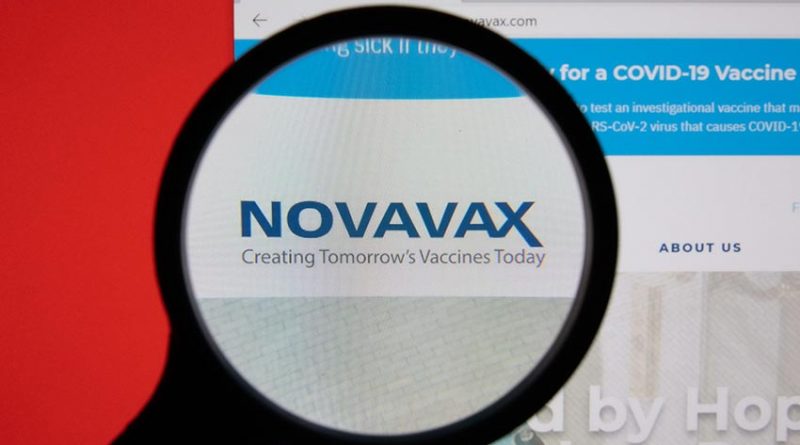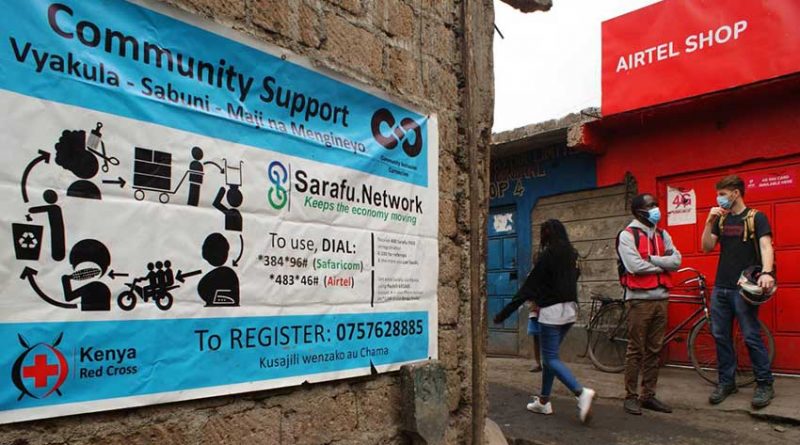ZIMBABWE has set aside $100 million to acquire COVID-19 vaccines but the government is still waiting for its scientists to recommend which type to buy, a state-owned newspaper has reported.
President Emmerson Mnangagwa’s government, which is grappling with an economic crisis and acute shortages of foreign exchange, has been criticised for being too slow to announce its vaccination plans.
George Guvamatanga, the ministry of finance secretary, told the Sunday Mail that the government would use funds from a 2020 budget surplus and reallocate some of this year’s budget to buy the vaccines.
Finance Minister Mthuli Ncube said in November that a budget surplus was expected for 2020, although final figures have not yet been published.
“The Government has set aside US$100 million for the vaccines to procure around 20 million vaccine doses to immunise 60% of the population, which will help us attain herd immunity,” Guvamatanga said, adding that the government was awaiting advice from scientists on which vaccine to buy and where to procure it.
Guvamatanga could not be reached for further comment.
Zimbabwe, with a population of about 15 million, has seen a surge in COVID-19 cases. More than half of its total 33,273 infections and more than two-thirds of the country’s 1,193 deaths have been recorded this month alone.
The country’s health system has been crumbling for years and is now struggling to cope with the spike in cases. Among those who have died in recent days were two cabinet ministers, a retired general and other high-ranking officials.
Anger among overwhelmed medics is adding to broader public dissatisfaction with Mnangagwa, who pledged an economic revival after he took over from the late Robert Mugabe following a coup in 2017.
NOVAVAX expects to produce up to 150 million COVID-19 vaccine doses monthly by May or June, its chief executive told Reuters, after reporting interim data that showed its shot to be 89% effective in a UK trial.
Novavax expects to complete the clinical trial for its experimental COVID-19 vaccine in the next few weeks, but is already working on manufacturing to be able to reach full production capacity quickly, Chief Executive Officer Stanley Erck said.
“We should be at full capacity starting in May or June, maybe as much as one hundred and fifty million doses per month globally,” he said.
Novavax shares jumped 65% on Friday to $221.27
Erck said he expects it will be several weeks before Novavax files the trial data with regulators in the United Kingdom, Europe and elsewhere, meaning that full review for authorization of its vaccine could take “a couple of months.”
Novavax on Thursday released initial results from a UK trial showing its vaccine to be 89.3% effective in preventing COVID-19 and was nearly as effective in protecting against the more highly contagious variant of the coronavirus first discovered in the UK. It also protected against the potent South Africa variant, though at a lower rate.
Erck said 16,000 volunteers have already taken part in its U.S. trial and that it will likely hit its target of 30,000 participants by early-to-mid February. The company would then observe them for about six weeks before reviewing the results, he added.
Novavax will initially focus its data review from the U.S. trial on the primary goal of preventing moderate to severe COVID-19, and subsequently, analyze the shot’s effectiveness against various concerning virus variants that have emerged.
The United States found its first cases of the coronavirus variant first detected in South Africa in South Carolina this week.
Novavax has supply contracts with the United States, Canada and Australia and is in talks with the European Union on a supply deal as well, the CEO said.
He added that his Maryland-based company has an agreement with the GAVI vaccine alliance to supply poorer countries with its shot to be produced by the Serum Institute in India – the world’s largest vaccine maker. It aims to produce 2 billion doses per year.
Novavax will begin scaling vaccine production in February or March, and expects to have its own production ramped up by the second quarter, along with production from the Serum Institute and partners in South Korea and Japan, Erck said.
Vaccine rollouts in the EU and other areas have been held back by supply issues as makers including AstraZeneca Plc and Pfizer Inc have said they would cut their shipments, at least temporarily.
SITTING on a low bench at her shop in a Nairobi slum, Grace Wangari sifted through a handful of grains that a waiting customer had just ordered.
As she poured them into a shopping bag, the customer scrolled through her phone to pay for the purchase.
Normally, Wangari would have been paid in shilling notes, Kenya’s hard currency, but in some ways she preferred the digital payment that was instantly transferred to her phone.
“I am happy with this transaction because there is no risk of losing my stock to conmen or people who have come to take goods on credit,” said Wangari, a middle-aged trader in Mukuru Kayiaba, one of the city’s poorest slums.
The transaction happened through Sarafu, a blockchain-based community currency that is helping thousands of Kenyan slum dwellers pay for food, water and sanitary items as they battle through the COVID-19 economic downturn.
Each week, families are issued with virtual vouchers worth 400 Kenyan shillings ($4), which they can use to buy essential goods, said Roy Odhiambo, an innovation officer at Kenya Red Cross Society (KRCS), one of the groups behind the project.
Vendors can then send the vouchers to Grassroots Economics, the Nairobi-based social enterprise that co-developed Sarafu (“coins” in English) with U.S.-based engineering firm BlockScience, and redeem them for cash.
Odhiambo said more than a third of the vendors in Mukuru are already signed up to the project, which launched in 2019 with the aim of helping struggling families get hold of everyday basics without worrying about having cash on hand.
Now the project is providing a lifeline for families trying to cope with the financial pain of the pandemic, he noted.

Antony Ngoka, a field coordinator with Grassroots Economics, said thousands of slum residents, who are mostly casual workers, have lost their jobs during the pandemic.
Unable to get loans from traditional banks, many become easy prey for loan sharks, he added.
But, blockchain can help poor Kenyans avoid economic exploitation, said Nelson Ochieng’, a rights activist and social worker in Kibera, Nairobi’s largest slum.
“Blockchain can foster local trade by tapping resources that are ignored by mainstream businesses. It also increases levels of trust among struggling communities,” he said.
SECURE AND TRANSPARENT
In Mukuru Kayiaba slum, about 5.5 miles (9 kilometres) away from Nairobi city centre, some 4,000 residents have registered with Sarafu, according to Odhiambo of KRCS.
Developed with funding from global government donors, the platform can make an average of up to 1 million Kenyan shillings ($9,0000) in daily transactions, Odhiambo said.
Unlike cash aid, which can be spent on anything, Sarafu can only be used to pay for essentials such as food, health supplies and educational resources, he explained.
And, he added, because the platform runs on blockchain, meaning all transactions are tracked and transparent, that ensures people are spending the money only on necessities.
Odhiambo said KRCS is currently working with the Danish Red Cross and Innovation Norway, the government’s business development agency, to roll out Sarafu across Kenya.
But, seeing the platform as a threat, loan sharks are using political and financial manipulation to lure Kenyans away from it, said Ochieng’, the rights activist.
Informal lenders recruit people to spread rumours that blockchain is a Ponzi scheme with no backing from local leaders, a tactic that has successfully stifled the uptake of other blockchain-based projects in the past, he explained.
“The aim of loan sharks is to divert people from innovations that are helping them access basic services in the slums without having to pay interest,” Ochieng’ said.
They also pull in customers by offering much higher sums than they can get through Sarafu, with exorbitant interest rates, he added.

Violet Muraya, who sells water in Mukuru slum, said informal lenders can offer loans up to 10 times larger than anything available through the community currency.
“When people have emergencies and need huge amounts of money, they cannot use Sarafu. So, they go to loan sharks for help and end up being trapped in financial slavery,” said Muraya.
Odhiambo said the Kenya Red Cross Society is running education and awareness-raising campaigns in areas where the project has been rolled out, to reassure users that the platform is safe and fair.
“At first there was resistance … because of the propaganda. But the community has accepted this cashless transaction because they know it is not some type of betting or loan facility,” he said.
‘NO ONE IS GOING TO SLEEP HUNGRY’
At Isaac Makavu’s food kiosk in Mukuru, customers lined up to order his steaming rolls of baked flatbread, chatting about an upcoming Premier League football game and sharing funny stories about their day.
Makavu said Sarafu has helped people in his community avoid eviction during the pandemic by allowing them to save their cash.
Some come together to pay each other’s rent through table banking, a form of savings scheme where a group contributes a set amount of money every month and then uses that money to help members who need it.
Charities say evictions have been rife in parts of East Africa during the pandemic. In one instance in May 2020, Human Rights Watch reported more than 8,000 people living in two Nairobi slums were evicted from their homes.
“But there have been no evictions in areas where Sarafu is being used by slum communities because they were able to pay their rent on time,” Makavu said.
“No one is going to sleep hungry here because they have community currency.”
Source – Thomson Reuters Foundation
The last few months have been awful for so many people, with millions dealing with grief, stress, financial difficulties, job losses and isolation caused by the pandemic.
Now Christmas has given way to January and the long dark winter months are here - a time that can be tough for many people even in normal times. But the country's leading mental health experts say there are things that many of us can do to give ourselves a lift. Here are some of their tips.




